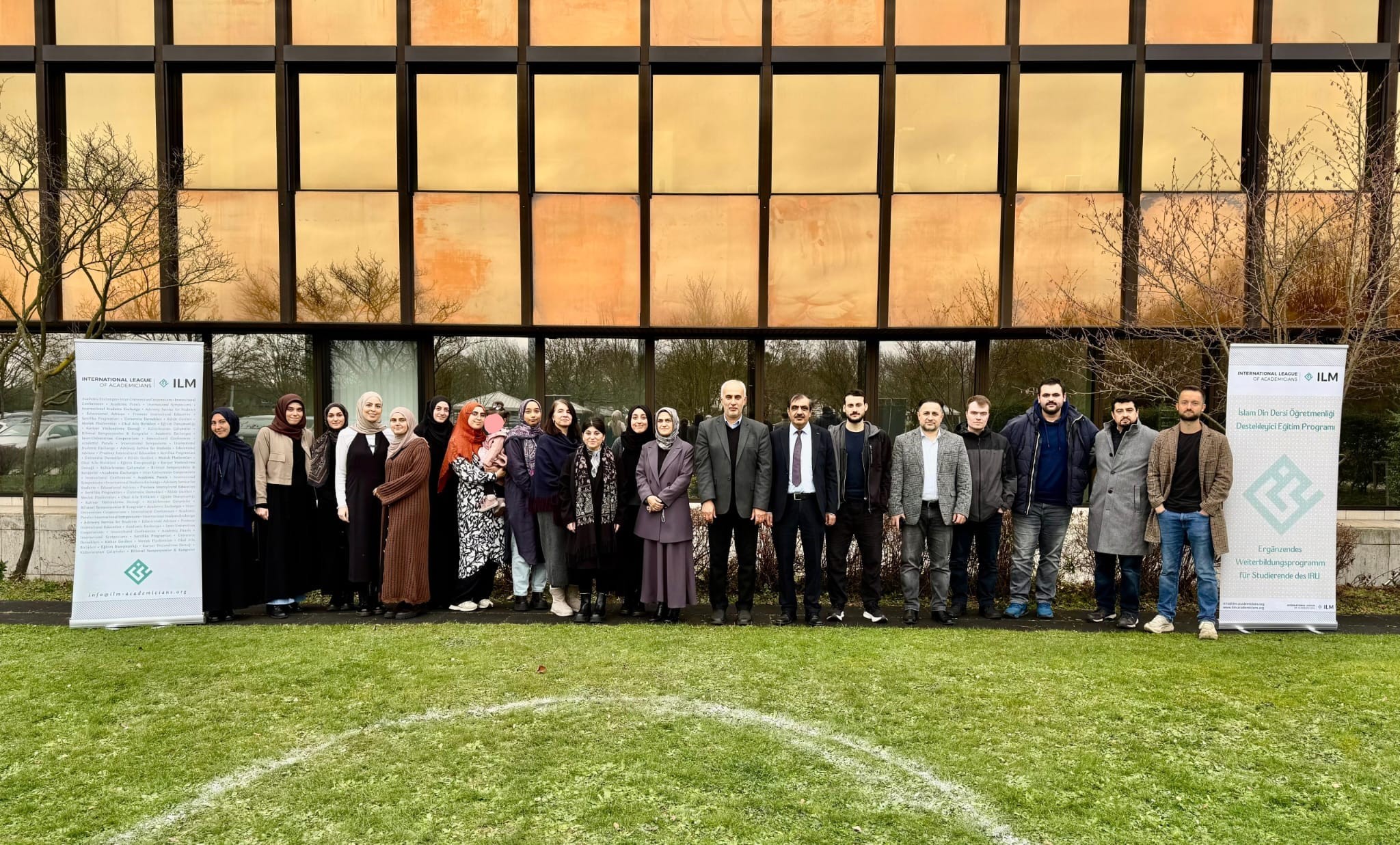
SUCCESSFUL CONCLUSION AFTER THREE YEARS AND 15 MEETINGS
Further Training Programme for Islamic Teachers at Schools
The three-year further training programme for Islamic teachers at schools consisted of a total of 15 meetings. Its aim was to enhance the pedagogical skills of teachers and provide a platform to discuss contemporary topics with renowned experts.
Overview of the Meetings
1. ‘Faith and Good Deeds’, presented by Prof. Dr. Muna Tatari, University of Paderborn.
2. and 3. Joint Meetings with IRU and Catholic Teachers: Contributions by Prof. Dr. Christine Funk (Catholic University of Applied Social Sciences Berlin), Markus Röntgen (Archdiocese of Cologne), and Dr. Hakan Aydın (ILM Academy Cologne).
4.‘Islamic Law and Its Impact on Schools’, presented by Prof. Dr. Idris Nassery, Dean of the Faculty of Theology, University of Paderborn.
5. ‘Gender Debates and Muslims’, presented by Dr. Hakan Aydın.
6. ‘Using the Iqra Textbooks in the Classroom’, presented by Aynur Bulut and Rukiye Kurtbecer.
7. ‘Rethinking Islamic Religious Education’, presented by Elif Medeni, Austria.
8. Third Joint Meeting with IRU and Catholic Teachers: Contributions by Prof. Dr. Christine Funk, Markus Röntgen, and Dr. Hakan Aydın.
9. ‘Educational Methods in Islamic Civilisation’, presented by Dr. Abdullah Sahin, University of Warwick.
10. ‘Islam and Democracy’, presented by Dr. Ravza Altuntaş Çakır, academic from England.
11. ‘Education That Touches the Heart’, presented by Dr. Yılmaz Gümüş, University of Osnabrück.
12. ‘Dealing with Controversial Hadiths in School Lessons’, presented by Dr. Hossam Ouf, University of Tübingen.
13. ‘Educational Methods of the Prophet’, presented by Dr. Ali Özgür Özdil, Hamburg.
14. ‘Diversity Among Students in Islamic Religious Education’, presented by Markus Gerhold, Düsseldorf.
15. Presentation of the ‘Handbook for Islamic Religious Education’, presented by Dr. Hakan Aydın.
Participants and Programme Objectives
- A total of 25 teachers from various regions of Germany participated, teaching both Islamic religious education and other subjects.
- Together with the first group of participants (2019–2021), a network of approximately 60 teachers has been established.
A Significant Achievement of the Programme
A key outcome of this initiative was the publication of the ‘Handbook for Islamic Religious Education’ in German. This comprehensive resource, now available to the educational community, addresses numerous current and controversial topics.
With contributions from academics from Germany, the UK, and Turkey, the handbook serves as a valuable tool for the further training and professional development of Islamic teachers.
 English
English
 Türkçe
Türkçe German
German